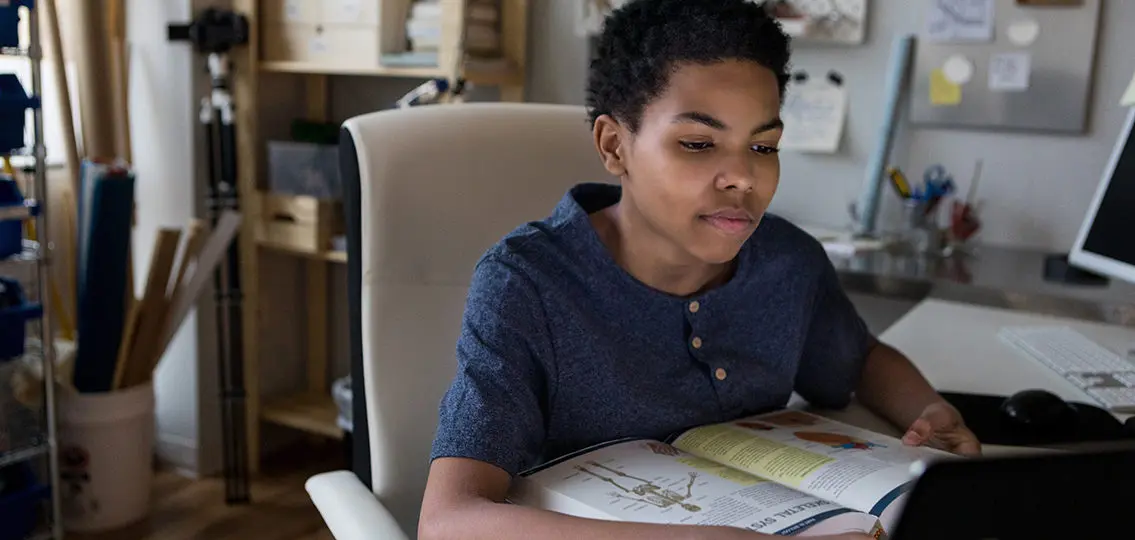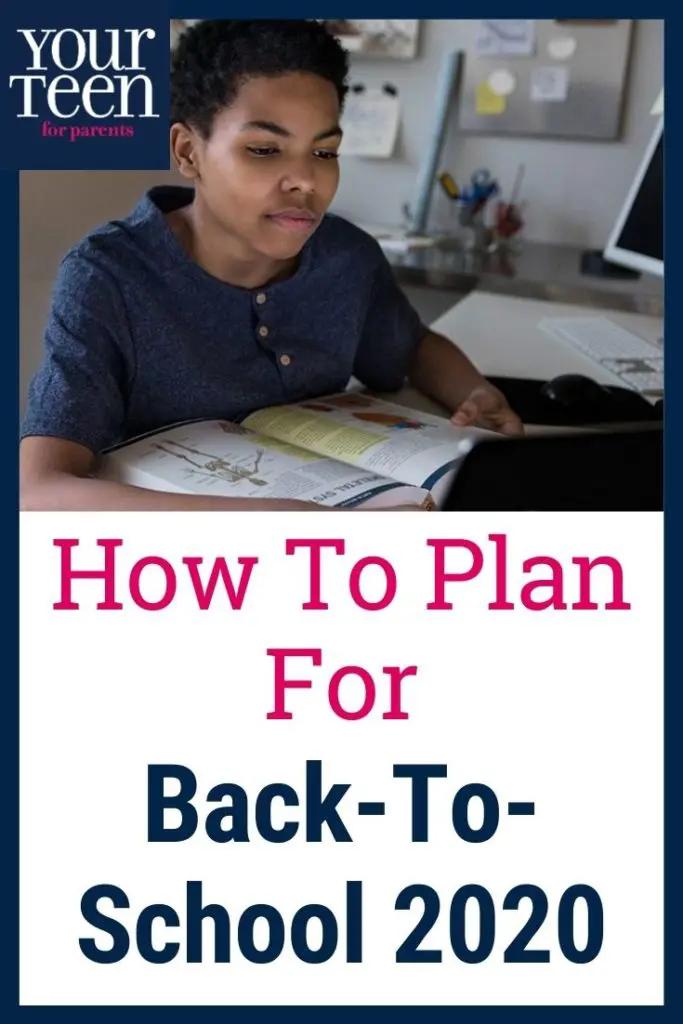After a spring of learning from home, we should be eagerly counting the days until school starts, thrilled for our children to return to having a schedule, to learning, and to social interaction.
If only.

Instead, we are wallowing in worries about going back to school. We are fearful of the consequences of returning and equally fearful of the consequences of not returning. It’s an extraordinary dilemma for parents, teachers, and communities.
It’s strange that we have to decide what to do about school, but that is exactly the position that most parents find themselves in. Many schools have offered options, leaving it up to parents to choose. But there’s not one option that keeps our kids safe from harm. There’s not one option that is guaranteed to stay the same for the duration of the school year. There’s not one option that eliminates the enormous uncertainties about the virus and the turbulence in our country.
So how can parents tackle this?
How to Approach Going Back to School 2020
Dr. Debi Gilboa, a board-certified family physician and expert in resiliency, offers the following advice:
1. You are the expert on your child
You know what they need better than anyone else. “Use your expertise, along with the scientific facts and the information that is available, to make the best decision you can,” Gilboa recommends.
2. Parents always have choices
Your school district may have already announced its plan for the year, but as a parent, you still have choices about how you interact with the decisions the school has made, Gilboa explains. That may be reaching out to school leaders with questions, concerns, or support, or it may be exploring a different option for your child if you’re not comfortable with what your school offers.
3. Health and safety come first
As you balance the risks and the benefits of returning to school, health and safety are a priority now more than ever, asserts Gilboa. In addition to understanding your own child’s risk factors, parents need to be clear their school is following best practices as they design safety measures for reopening. If not, parents should try to get involved by advocating with the school leadership in their community.
4. Parents excel at creative problem-solving
Gilboa, a parent of four, wants us to remember that we have spent our lives as parents solving problems in order for our families to function smoothly and safely. We can apply these same skills to the school year.
5. Use your village
Whatever your concerns, you are not alone. Don’t hesitate to crowd source or ask for help. Perhaps you and another family can form a school bubble to share the burden of supervision for virtual schooling or form a co-op of sorts.
6. Have a Plan B
With so much uncertainty on a daily basis, Gilboa recommends that all families have back-up plans. It is likely that a school day will take many shapes and forms this year, and the more we acknowledge and prepare for the fact that circumstances will change, the better off our teenagers will be. Resilience requires “when” not “if” thinking, so parents should do some problem-solving now for when schools have to close or change their structure. Involve your teens in the conversation; by recruiting their problem-solving skills and creativity, you may discover options you hadn’t thought of, and you will help prepare them for the unpredictability of this year.
7. Take the long view
Gilboa explains that we tend to give more weight to short-term discomfort than long-term risk. For example, when seat belt laws went into effect, many people complained that the strap was too uncomfortable to wear despite the fact that the evidence clearly indicated that seat belts save lives. This analogy applies to our situation today, and the key is to hold on to the overarching goal of making sure that our teens are safe and healthy even if that does mean they will experience some disappointments in the short term.

When all is said and done, Gilboa believes that “this experience will change our children’s path, whether we want it to or not. It’s part of who they are and who they are going to be. Ultimately these stressors will strengthen our kids by preparing them for the uncertainties and upheaval they will each face as adults.”





